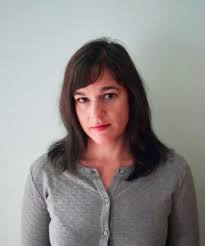Ava has lived in Iowa for the 14 years of her life. Most of that life was on a farm, until her father lost the property and then his own life. Her mother works in a factory, but she, too, dies, from a rare disease. The only relative Ava knows of is her grandmother, Lane, who lives in New Orleans. And that’s where Ava is sent.
Lane is not only an artist; she’s a highly gifted one. She lives in the only family home in what’s called Uptown – the area that was built along St. Charles Avenue and encompasses the Garden District, Tulane and Loyola universities, and Audubon Park and Zoo. Lane also stays in something of a personal fog, the result of almost non-stop marijuana smoking. Her hired assistant, Oliver, manages her bills, her life, and her marijuana supply. Ava is thrust into the middle of this world, and Lane is struck at how much the girl resembles her mother.
But this is New Orleans, a place where everyone has secrets. Like the young man running for city council, following in his father’s footsteps. He and Lane share a secret from years ago, when he was the same age Ava is now. Long-buried secrets have a habit of erupting into daylight. And that can result in violence.

Melissa Ginsburg
The House Uptown is the second novel by author Melissa Ginsburg. It’s a story of New Orleans, and remarkably it’s the New Orleans I remember growing up in. Few writers get the sense of the city right, but Ginsburg has managed to do it.
A native of Houston, Ginsburg has also published the novel Sunset City; two poetry collections, Doll Apollo and Dear Weather Ghost; and three poetry chapbooks. She studied poetry at the Iowa Writers workshop, and her poems have been published in numerous literary journals. She is currently an Associate Professor of Creative Writing and Literature at the University of Mississippi in Oxford, and she also serves as associate editor of Tupelo Quarterly.
The House Uptown is a compelling read, difficult to put down. Ginsburg has a way of keeping the reader focused on the story and the page. You think you know how the story is going to end, and you discover you can be right and wrong at the same time.

No comments:
Post a Comment